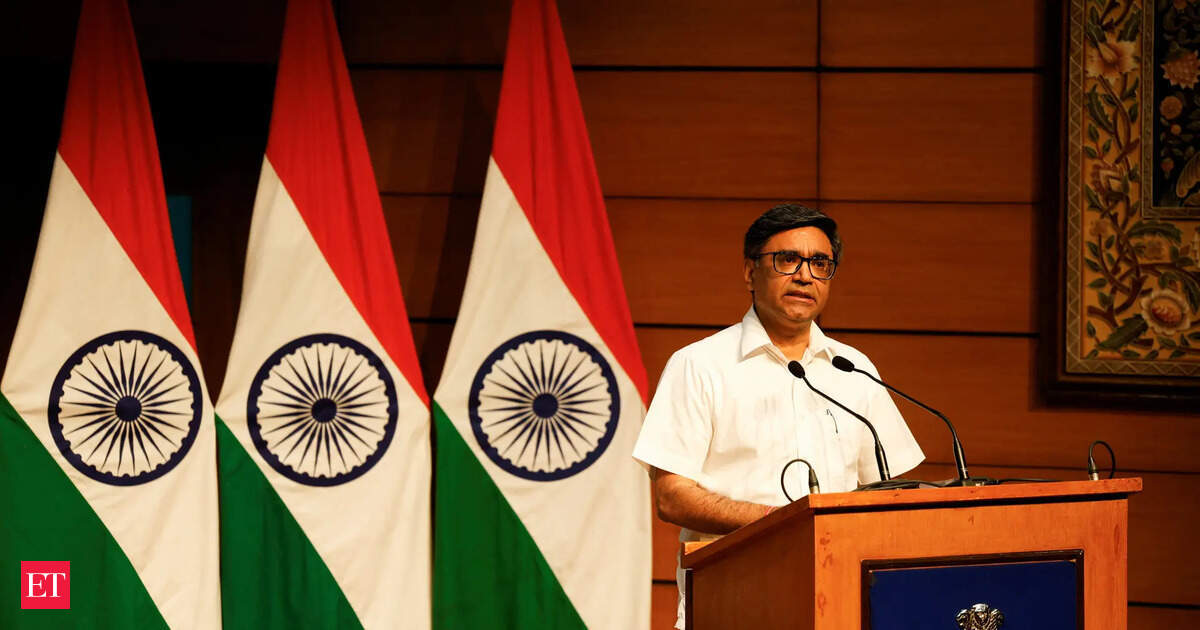Criticism of IMF Financial Aid to PakistanMisri did not hold back in his criticism of Pakistan’s use of IMF funds, alleging that the financial support is indirectly enabling Pakistan to fund its military-intelligence operations, including groups such as Lashkar-e-Taiba (LeT) and Jaish-e-Mohammed (JeM). “Pakistan’s reputation as the epicentre of global terrorism is rooted in a number of instances… I don’t need to remind where Osama Bin Laden was found and who called him a martyr,” Misri said. He also pointed to the large number of terrorists, including those sanctioned by the UN, who continue to operate within Pakistan’s borders.
Misri’s statement follows mounting concerns that financial support to Pakistan might be used to fuel its ongoing cross-border terrorism activities, particularly against India.
IMF Review and Pakistan’s Economic CrisisPakistan, currently facing a severe economic crisis, is highly reliant on IMF support through its Extended Fund Facility (EFF). The IMF’s review on May 9 will determine whether Pakistan meets the necessary conditions to unlock the next tranche of funding. However, the timing of the review is particularly sensitive, coming just days after India’s “Operation Sindoor,” which targeted terror camps in Pakistan and Pakistan-occupied Kashmir.This development has added weight to India’s calls for a reassessment of Pakistan’s financial assistance. India has formally requested that the IMF reconsider its financial aid, arguing that the funds are diverted towards Pakistan’s military apparatus and militant groups. “Pakistan has pursued cross-border terrorism against India for decades,” Misri emphasised.Tensions Rise Following the Pahalgam Terror AttackThe recent escalation between India and Pakistan was sparked by the deadly Pahalgam terror attack in Kashmir on April 22. Misri noted that this attack marked the beginning of rising tensions between the two nations. Despite Pakistan’s denial, Misri pointed out that the terror group responsible, The Resistance Front (TRF), had publicly claimed responsibility for the attack.
Misri also highlighted that Pakistan had objected to the mention of TRF in a UN Security Council statement on the attack, underscoring the ongoing cover-up by Pakistan’s authorities regarding their support for terror groups. “Our approach is not to escalate the situation; we only responded to the April 22 Pahalgam terror attack,” Misri asserted.
Pakistan’s Continued Support for Terrorist Groups
Pakistan’s longstanding support for terrorist organisations like LeT and JeM remains a significant point of contention between the two countries. Misri reiterated that Pakistan’s actions have destabilised the region, contributing to global terrorism. He also reminded the international community of Pakistan’s role in harbouring terrorists who have been responsible for high-profile attacks across the globe.
In his remarks, Misri mentioned that both Pakistan’s Defence Minister and former Foreign Minister had recently admitted to their country’s involvement with terrorist groups, further confirming India’s position on the matter.
Military tensions between India and Pakistan remain high, with both nations continuing to target each other’s military sites. During a joint press briefing by the Ministry of External Affairs (MEA) and security forces, Colonel Sofia Qureshi of the Indian Army confirmed that Pakistan had targeted multiple military sites in northern and western India on the night of May 7-8. This came after India’s military had responded to the initial escalation caused by the Pahalgam attack.
Misri underlined that India’s actions were a direct response to Pakistan’s aggression and not a provocation. “The attack in Pahalgam on April 22 was the original escalation, and the Indian Armed Forces only replied to that escalation on May 7,” he explained.

